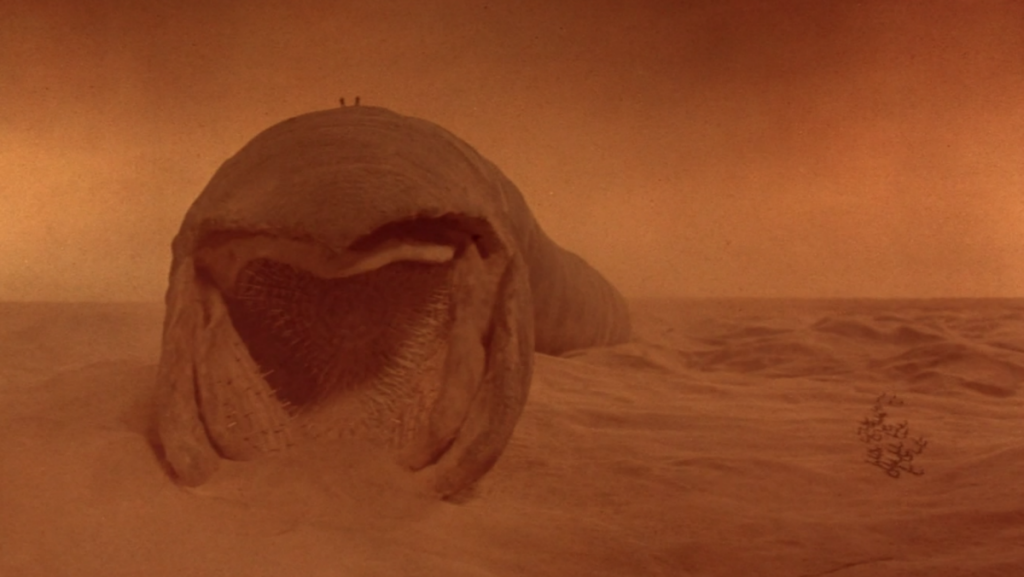Are you ready to embark on a drug-fueled space jihad while riding on the back of giant sandworms? Dune is back in town so hop on the hype-wagon before you’re left in the dust storm.
A trailer just dropped for Denis Villeneuve’s 2020 adaptation of Frank Herbert’s 1965 sci-fi novel Dune. Check out Arrival and Blade Runner 2049 if you haven’t already to see why everyone is eagerly awaiting this release.
Even if you are unfamiliar with the six-novel series, it’s likely you would recognize elements of it from its visual and thematic influence across popular media like Star Wars, Game of Thrones and countless musical acts (like Canada’s own Grimes).
Dune, the first novel in the unfinished series (Frank Herbert died before he could write the final book), expertly tackles a complex weaving of ecological, political, and philosophical themes that have made it a favourite of both undergrads and literature-obsessed parents. Dune follows the Atreides family and its heir, Paul, as they battle for power against other noble families on the desert planet Arrakis – the universe’s only known source of the spice melange, the most valuable resource in the universe. Spice is an ultra-super-crack drug that grants its users extended lifespans, mind-altering powers, and physical capabilities, and also controls space travel. It would be an understatement to say that the universe is addicted to the stuff, they sprinkle it all over every freaking thing they eat.
Oh, and Arrakis is covered in gigantic man-eating sandworms! That scene in Return of the Jedi where they’re almost eaten by the worm on Tatooine? Stolen. I’m not kidding when I say the world-building and influence of the series is on another level. The series covers thousands of years of eugenics programs, religious fervour, and ecological development.
The novel is a page-turner full of political intrigue, intense philosophical dialogue, and character development that flips archetypes and hero narratives upside down. Dune is science fiction for literary nerds; while the fantastical sci-fi setting is intriguing, it is by breaking genre conventions that Herbert manages to focus on the human element at the core of the novel. One of the most compelling facets of Dune is the deep dive we take into the thoughts of its main characters, such as the psychological turmoil within the mind of Paul’s mother, Lady Jessica, as she grapples with the responsibility that she wields for protecting her son as they cross the desert. The biggest struggle in bringing Dune to the big screen is balancing the action with the characters’ detailed pensive thoughts more suited to the written form.
I couldn’t talk about Dune without mentioning the infamous 1984 David Lynch adaptation, with awe-inducing set design, wardrobe choices, and atmospheric cinematography. But the film’s strengths are overshadowed by its failure to adapt the inner thoughts of its characters and its willingness to remove swathes of the story in favour of unbearably lengthy exposition.
There’s a lot to expect of the new Dune film. The casting of Timothée Chalamet isn’t the only thing to look forward to. The books are a good read, but at the very least, check the ‘84 film out when you have some free time and can make a quick trip over to Cannabis NB.




